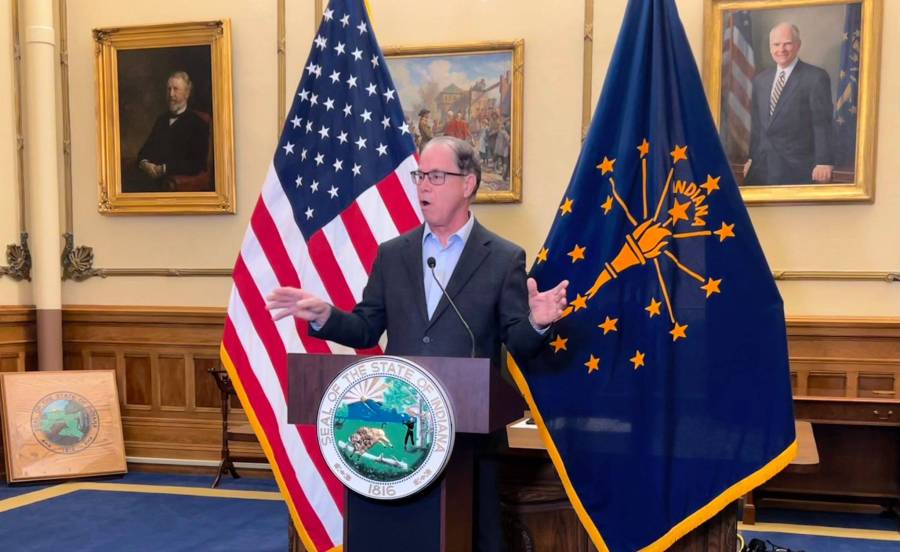Halfway through the 2025 legislative session, Indiana has passed several big-ticket items so far

INDIANAPOLIS — After promising property tax relief on the campaign trail, Gov. Mike Braun’s tax plan passed out of the Indiana Senate with major rewrites.
“I’d like to see some amendments that kind of put the governor’s language back in the bill.,” Lt. Gov. Micah Beckwith said during an Americans for Prosperity event at the Indiana Statehouse earlier this month.
The amended Senate bill took out some of Gov. Braun’s biggest proposals such as homestead deduction increases and a reset to 2021 tax rates. It instead replaced permanent tax caps with temporary ones through 2028. The governor threatened a veto along with a special session if lawmakers pass the bill as it is.
”If it doesn’t improve, I’m likely to do both of them depending on what you need to do to actually get real relief,” Gov. Braun said. “When you ask the taxpayer to do more than what they can afford, you’re going to hear an uproar like we heard over the last two years.”
The bill passed out of the Senate 37-10, and has been referred to the House Ways and Means Committee for consideration. House lawmakers on both sides of the aisle said they’re confident a special session is unlikely.
“We have a great relationship with Gov. Braun,” Indiana House Speaker Todd Huston said. “We’re going to continue to work with Gov. Braun and his team with Sen. Bray and his team; I can’t even imagine that being necessary.”
”I’m sure that they’re going to do everything they can to avoid a special session, so, I wouldn’t anticipate one,” House Minority Leader Phil GiaQuinta said.
On the House side, lawmakers added $500 million to the governor’s budget proposal—mostly for IDOC and DCS.
”It’s a good first half budget, and we continue to learn more, [and] watch what happens at the federal level,” Speaker Huston said.
The budget bill also removed income limits for the Indiana Choice Scholarship Program.
”Education and opportunities are great, and to me that is the key word: opportunity,” House and Ways Means Chair Jeff Thompson (R-Lizton) said.
“It does very little for the 90 percent of our kids in traditional public schools,” State Rep. Ed DeLaney (D-Indianapolis) said.
”It’s paying for students already going to these schools, so that’s really disappointing,” Leader GiaQuinta said. ”It seems like it’s every budget year, you know, that there’s more of an emphasis or focus on different things besides traditional public schools.”
Immigration bills were also front and center on the House side. One bill would punish businesses with more than ten employees who knowingly hire those here illegally. Another would require law enforcement agencies to report an arrested individual’s information to ICE if an officer suspects they’re here illegally.
“This is just a simple determination of somebody that has been arrested for a felony or misdemeanor of whether they are here legally or illegally,” State Rep. Jim Lucas (R-Seymour), one of the bill’s co-authors, said following a committee hearing.
The bill came as Gov. Braun signed an executive order requiring all law enforcement agencies to comply with ICE. Another executive order banned DEI from state agencies.
”We’re directing agencies to examine policies and procedures to ensure compliance with recent SCOTUS ruling,” Gov. Braun said moments after he signed the DEI executive order.
“This executive order will harm the already struggling Indiana workforce and economy for years to come,” State Rep. Earl Harris, Jr. (D-East Chicago) said during an event in response to that executive order being signed.
The Senate passed a bill to take that executive order one step beyond: if signed into law, SB 289 would ban DEI in state colleges and prohibit K-12 schools from requiring students and staff to follow certain beliefs.
The Indiana General Assembly will reconvene on March 3.

Comments are closed.